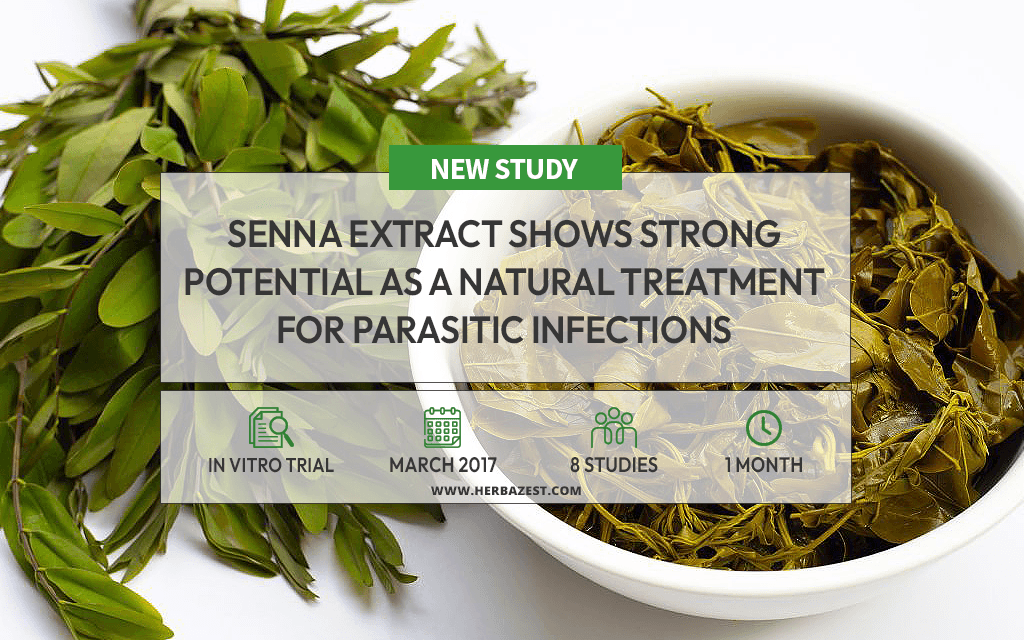Intestinal worm infections continue to be prevalent globally, especially in developing regions where they pose significant health challenges. Among these, tapeworm infections are particularly notable. The rise of drug resistance in parasites and the high costs of existing medications emphasize the need for alternative treatments.
In this context, exploring medicinal plants for their potential anthelmintic properties presents an attractive avenue.1 In a recent study, researchers investigated the anthelmintic potential of senna, a perennial shrub that has gained recognition in various traditional medical systems worldwide, including Ayurveda and Unani.
The Study
In this in vitro study, researchers used fresh senna leaves to prepare an ethanol-based extract. The tapeworm parasite, Hymenolepis diminuta, was exposed to various concentrations of senna extract, synthetic sennosides, and praziquantel (serving as the control treatment).
For reference, praziquantel is an effective medication used to treat parasitic worm infections, including those caused by tapeworms. Sennosides, on the other hand, are naturally occurring compounds found in the senna plant, known for their laxative properties and for treating gastrointestinal disorders.
The Results
Researchers observed a dose-dependent anthelmintic efficacy of the senna extract, with increasing concentrations leading to shorter paralysis periods and eventual mortality of the parasites.
The structural damage caused by the senna extract was more pronounced than that caused by the drug praziquantel. In contrast, parasites treated with sennosides showed less damage compared to those treated with praziquantel and senna extract.
What Does this Mean?
The study demonstrated significant anthelmintic activity of the senna extract. Its efficacy, shown through dose-dependent paralysis and mortality of the parasites, suggests its potential as an alternative treatment for parasitic infections.
While senna's efficacy against parasitic infections has been previously shown in vitro studies, further research is necessary to identify the plant's active compounds and understand their mode of action. Other herbs with antiparasitic properties include cloves, garlic, and neem.
Sources
- Journal of Parasitic Diseases, Senna alexandrina Mill. induced ultrastructural changes on Hymenolepis diminuta, 2017
Footnotes:
- Journal of Helminthology. (2013). In vitro screening for cestocidal activity of three species of Cassia plants against the tapeworm Raillietina tetragona. Retrieved April 21, 2024, from https://pubmed.ncbi.nlm.nih.gov/22433293/




